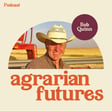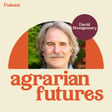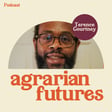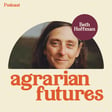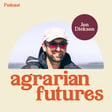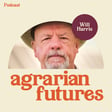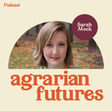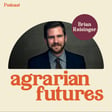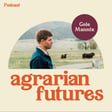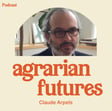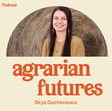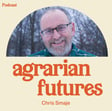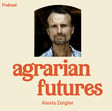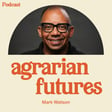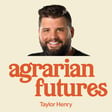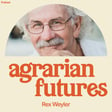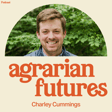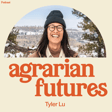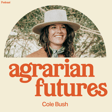
Farming Kelp to Preserve Coastal Communities with Briana Warner
This week we were delighted to be joined by Briana Warner, CEO of Atlantic Sea Farms, a regenerative seaweed farming company based in Biddeford, Maine.
Briana walks us through the wondrous potential of kelp to help secure the economic future of fishermen along the coast of Maine, protect our oceans, decarbonize our supply chains, and introduce a nutritious and affordable food source into the broader American diet.
Her work explores many of our favorite themes on this show - climate change adaptability, rural revitalization, the brass tacks of launching a business in the regenerative food space, nutrition, and long term economic security for the people that grow and harvest our food.
In this episode, we cover:
- How her experience with “preventative economic development led her to kelp farming on the coast of Maine.
- The rise of the conservation minded lobster industry and how that lays the groundwork for a US grown kelp industry to diversify economic opportunity for fishermen.
- The environmental volatility that threatens the long term future of the lobster industry and how our predictive capabilities fail in the face of climate change.
- The massive potential industry for a US grown seaweed market.
- The challenges of being a first mover in the food industry and how they’re overcoming it.
- Why they chose a for-profit model over non-profit
- The challenges of finding the right kinds of funders, the lack of funding for female entrepreneurs, and holding firm in the face of outside pressures
- And much more...
Learn more about Atlantic Sea Farms.
Follow them on LinkedIn and Instagram.
More about Briana:
Briana Warner is the President and CEO of Atlantic Sea Farms (ASF), the leading commercial kelp aquaculture company in the United States. Following a career working overseas as a diplomat for the U.S. Department of State, she saw an opportunity to help create a more resilient and thriving coast by partnering with fishermen seeking to diversify their income in the face of climate change by growing kelp and building an entirely new market for domestic kelp. The ASF team and partner farmers now account for the majority of the farmed kelp grown in the US and are proving that by putting farmers, planet, and people first, a company can drive a market and can do well while doing good.
Agrarian Futures is produced by Alexandre Miller, who also wrote our theme song.
